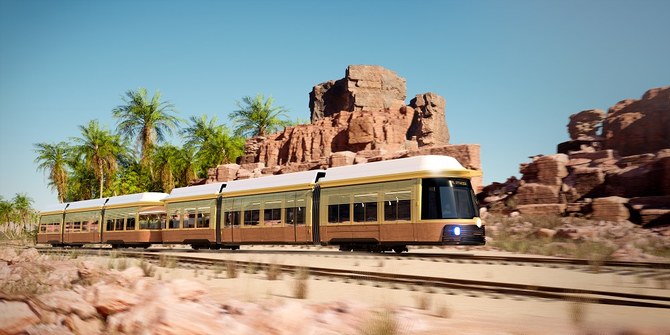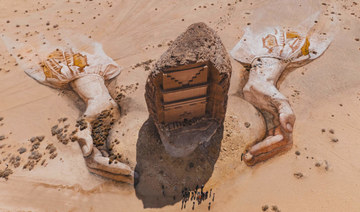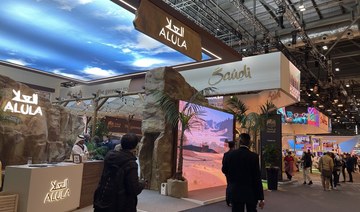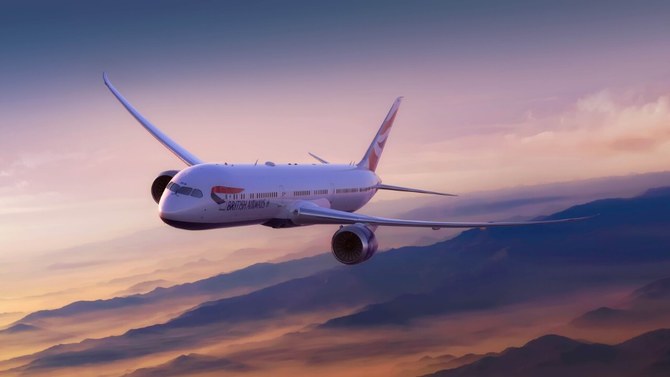RIYADH: AlUla’s battery-powered tramway is a testament to Saudi Arabia’s journey toward a sustainable, innovative transportation system, insists a top official from the company behind its design.
Speaking to Arab News, Mohammed Khalil, managing director of Alstom KSA, said the project — which spans 22.4 km with 17 stations — marks the world’s longest battery-powered, catenary-free tramway line.
He added that this demonstrates a key focus on carbon emission reduction and green transportation.
“As part of Saudi Vision 2030, (the tramway) supports the nation’s commitment to environmental stewardship,” said Khalil, adding: “This innovative transportation system plays a key role in reducing carbon emissions and advancing green technology.
“Battery-powered trams that rely on electricity sourced from renewable energy, lead to a decrease in greenhouse gas emissions, reducing reliance on fossil fuels.”
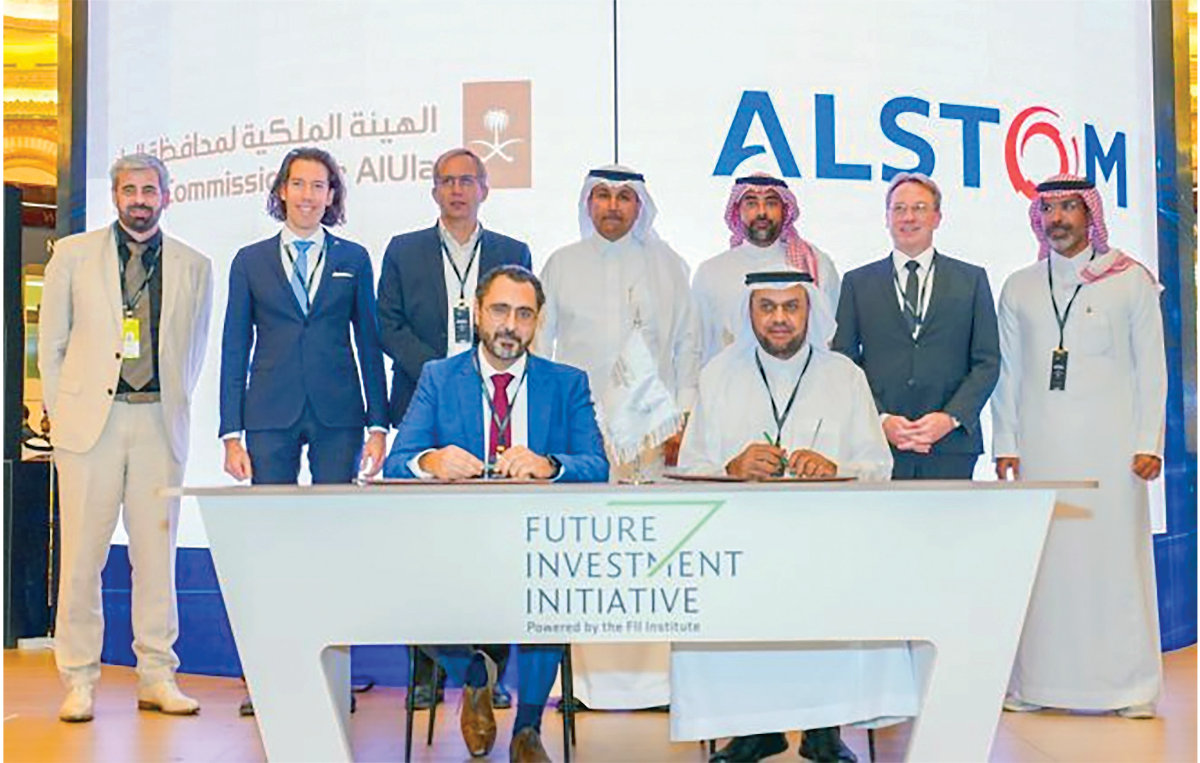
The investment in local maintenance expertise has allowed Alstom to build a strong foundation within the region. (Supplied)
The vehicles used in this project differ from their traditional counterparts by operating on rechargeable batteries instead of overhead electrical lines.
This allows for reducing the need for extensive infrastructure, allowing the system to remain environmentally conscious while simultaneously leading to a quieter, more aesthetically pleasing urban environment.
In AlUla, a destination that is home to some UNESCO World Heritage sites and whose identity hinges on culture and heritage reservation, this feature becomes especially valuable.
Alstom, a global leader in smart and sustainable mobility, will employ innovative technology to integrate the tramway into the cultural fabric of AlUla, the MD said.
The technology, known as Citadis B, allows the vehicle and its charging system to offer fast, ground-based charging, thus making it both efficient and less visually intrusive.
He added that the project does not only contribute to environmental sustainability, it also contributes to the economic and cultural sustainability of AlUla.
“Boosting tourism and stimulating local businesses, it aligns with Saudi Arabia’s goal of diversifying its economy beyond oil,” said Khalil.
The tramway is designed to respect the region’s rich cultural heritage, ensuring a development that preserves historical significance, Khalil affirmed, further noting that this balance of economic growth and environmental responsibility demonstrates the key sustainability values that are central to Saudi’s Vision 2030.
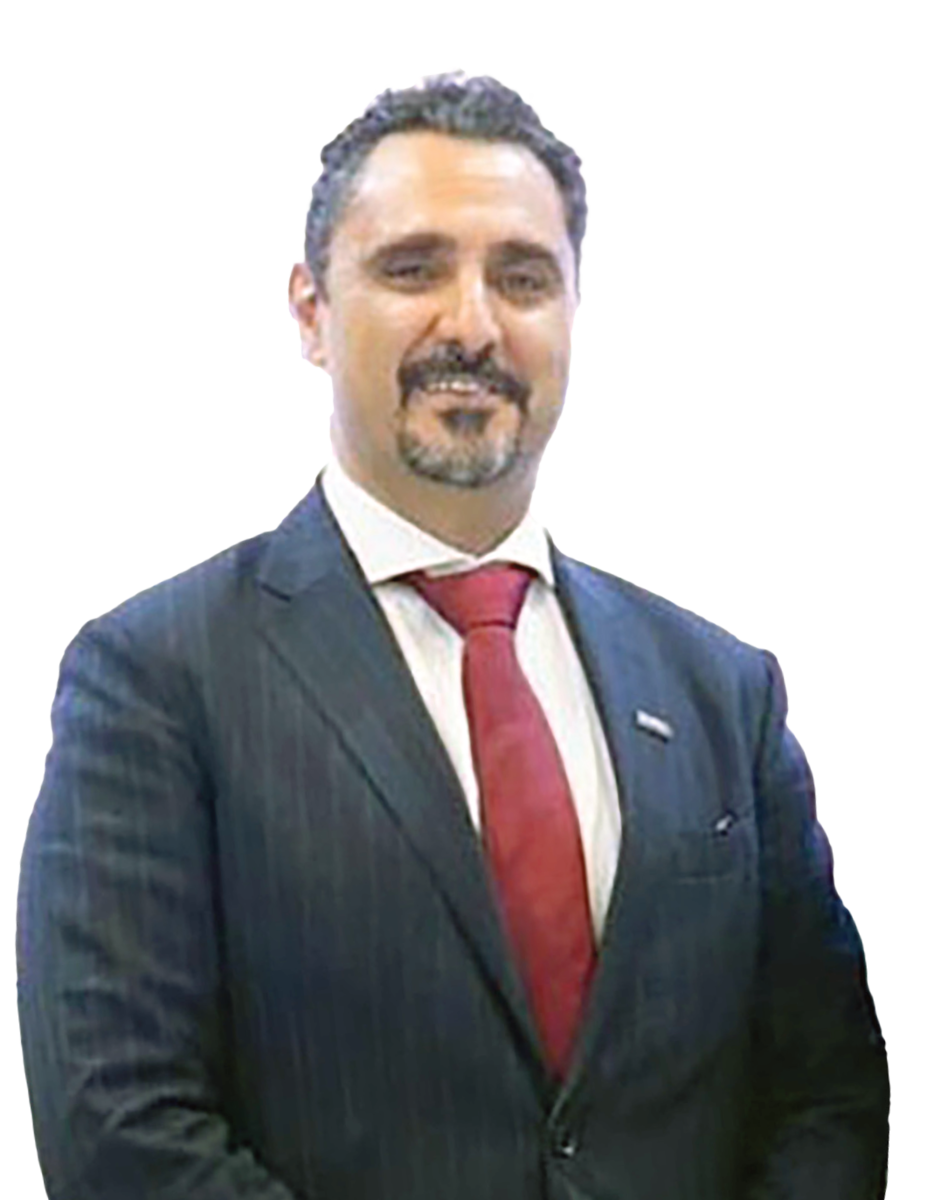
Mohamed Khalil
In order to integrate these values into their execution, blending cultural and historic elements into the project’s design and functionality, the company will utilize the traditional aesthetics of the historic Hejaz railway.
This transport network was a narrow-gauge railway that ran from Damascus to Medina, through the Hejaz region of modern-day Saudi Arabia, with a branch line to Haifa on the Mediterranean Sea.
Thus, by implementing elements of its design into the modern tram, the design will serve as a bridge between AlUla’s rich past and its dynamic future.
The executive outlined that this will be further achieved through a design that mirrors the local architectural style, ensuring the trams complement the historical districts they connect, with each tram being “especially adapted to reflect the unique character and needs of the region.”
He added: “This includes external designs that blend with the local surroundings and interior adaptations that enhance the passenger experience while offering a glimpse into the region’s heritage.”
Furthermore, Khalil said that features like the open belvedere, a low-floor design for easy boarding, climate-sensitive air conditioning, and dynamic onboard journey information systems are all tailored to provide an immersive travel experience.
The custom trams will be manufactured across Alstom’s production sites in France, including La Rochelle for both design and construction.
The company, which has been a player in Saudi Arabia’s transportation sector for over 70 years, has supported the Haramain high-speed rail line between Makkah and Medina.
It also provided the automated people-mover system to Jeddah’s King Abdulaziz International Airport, which has been in passenger service since 2020, for which the maintenance has been carried out by Alstom since 2022.
According to the director, the company takes “great pride” in its ongoing local presence within the Kingdom, adding that its vision is fundamentally aligned with supporting the Middle East in its “ambitions to become a prominent business hub, achieved by reshaping mobility and introducing sustainable transport solutions of tomorrow.”
HIGHLIGHT
The tramway is designed to respect the region’s rich cultural heritage, ensuring a development that preserves historical significance, Khalil affirmed, further noting that this balance of economic growth and environmental responsibility.
As part of the ongoing transport solutions, Khalil cited the recent demonstration of the hydrogen-powered Coradia iLint train in Riyadh, adding that it marks a significant milestone in green transportation initiatives not only in Saudi Arabia but also in the Middle East and Africa.
“This initiative, part of the MoU signed between Alstom and SAR (Saudi Arabia Railways) at InnoTrans in September 2022, showcases the first introduction of a hydrogen-powered train in the region,” he said.

The Coradia iLint, notable for being the world's first passenger train powered by hydrogen fuel cells, underwent a trial run in November 2023, covering 34 kilometers on Riyadh's East Network.
The train was deemed “revolutionary” in its eco-friendly approach by the director, due to its ability to produce electrical energy for propulsion without any direct carbon dioxide emissions.
Khalil said that the demonstration extends beyond the “technological marvel” of the train itself, as it aligns with Saudi Arabia’s comprehensive sustainability goals and Vision 2030 objectives.
“As a country committed to the Saudi Green Initiative, this move reinforces its dedication to an environmentally sustainable future,” Khalil affirmed
As countries in the region continue to strive towards ambitious net-zero targets, the company is steadfast in providing sustainable mobility across the middle.
Their investment in local maintenance expertise has allowed Alstom to build a strong foundation within the region, according to Khalil, an effort that he noted they are confident “will contribute to the success of future projects such as the AlUla tramway.”
Under the AlUla tramway project, Alstom’s Services teams will leverage itinerant workshops to provide the local maintenance team with temporary access to special tools and equipment required for overhauls.
Furthermore, the company will make use of the local capabilities that they have built thus far. Brake overhaul specialists from Alstom’s Pinto site in Spain will organize training sessions for the team in AlUla, sharing their expertise and developing local capabilities.



